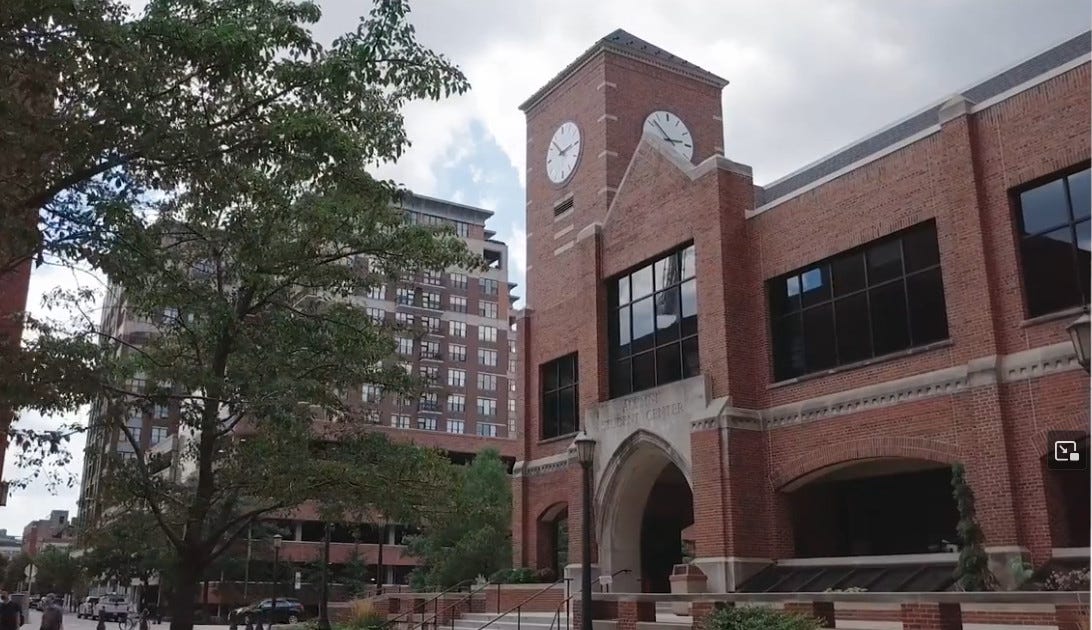Moody Bible Institute sues Chicago schools over exclusion from student-teacher program
Conservative college says it has legal right to hire according to religious belief

Nearly every school district in the United States that accepts college students in teacher-training programs welcomes student teachers from both secular and religious colleges and universities on similar terms. But not so in the Chicago city school system, and the result is that Moody Bible Institute, one of the country’s best-known Christian colleges, this week sued the school district so that Moody students could be among those receiving their on-the-job teacher training in the city’s schools.
The lawsuit raises legal questions about the applicability of both the First Amendment’s religious-freedom protections and the reach of anti-discrimination laws. The question of whether a public school district can bar from its student-teacher program students from religious colleges is one that appears to not have been settled in courts.
There was a case in 2023 where the school district in Glendale, Ariz., terminated an arrangement it had with Arizona Christian University for the university to provide student teachers. But the lawsuit the university filed was settled out of court on terms favorable to the university — suggesting that the school district determined that the law wasn’t clearly on its side. But an out-of-court settlement doesn’t set a legal precedent.
The lawsuit, Moody Bible Institute of Chicago v. Board of Education of the City of Chicago, was filed Tuesday in U.S. District Court for the Northern District of Illinois Eastern Division. The college is represented by attorneys of the Alliance Defending Freedom, which frequently (although not exclusively) represents conservative religious interests in First Amendment cases.
Because the Chicago school system has not had time to file its response to the suit, this article does not include its legal arguments and will be updated once its board formally responds to the lawsuit.
Moody Bible Institute has about 1,500 undergraduate students and about 200 students enrolled in its postgraduate seminary. Of the undergrads, about 1,050 attend in person with the remainder attending virtually. The college is not affiliated with any denomination, but its statement of beliefs identifies its theological positions as “non-charismatic, dispensational and generally Calvinistic.” The school says it “has held to the essentials of biblical orthodoxy”; it rejects human evolution and says that marriage should “a monogamous, permanent, committed relationship between a male and a female.”
According to the lawsuit, Moody’s undergraduate program for prospective teachers was approved by the Illinois State Board of Education, which issues teacher licenses, in 2024.
Moody said that its approval by the state “further demonstrates that Moody’s elementary education program meets rigorous professional and regulatory standards. “In fact,” Moody said its its court filing, “the Illinois State Board of Education highlighted the importance of Moody participating in Chicago Public Schools’ student-teaching program when considering whether to grant state approval.”
But, Moody said, the school district refused to enter an agreement allowing Moody students into the district’s student-teacher program unless it agreed to hiring practices that included nondiscrimination on the basis of religion, gender identity/expression and sexual orientation, among other factors. The college said that “as a religious organization, Moody has a legally protected right to employ persons who share its religious beliefs and agree to comply with its religiously based standards of conduct.”
Moody summarized its position this way:
In short, Chicago Public Schools excluded Moody and its students because Moody exercises its right to hire coreligionists — i.e., those who share and live out its religious beliefs.
Moody says the school system’s position violates, among other things, the free-exercise and establishment clauses of the First Amendment, the ministerial exception of Supreme Court precedent, its right to free association, and the Illinois Religious Freedom Restoration Act.
The college is primarily seeking injunctive relief allowing it to participate in the school district’s student-teacher program.

